#Calorie-Counting
Explore tagged Tumblr posts
Text
What Makes Ultra-Processed Foods So Bad For Your Health?
They Are Calorie-Rich, Nutrient-Poor And Hard To Stop Eating
— August 7th, 2023

Image: Getty Images
Food shopping has become a dangerous pursuit. Nutritional horrors lurk on every shelf. Ready-meals are packed with salt and preservatives, breakfast cereals are sweeter than chocolate bars, and processed meats are packed with nitrite-preservatives, which can form harmful compounds when cooked. A new term is catching on to describe these nutritional bad guys: ultra-processed foods (upfs). In his new book, “Ultra-Processed People”, Chris van Tulleken, a doctor and television presenter, argues that upfs dominate the food supply in rich countries, and are also creeping into diets in low- and middle-income countries. As they proliferate, so do concerns about their effects on human health. Just how bad are upfs, and what do they do to us?
The concept of upfs was devised by Carlos Monteiro, a Brazilian scientist, in 2009. His team of nutritionists observed that although people in Brazil were buying less sugar and oil, rates of obesity and type-2 diabetes were rising. That was because they were instead eating more sugar, fats and additives in packaged snacks and pre-made meals. In response, Mr Monteiro proposed a food classification system to take into account the degree of processing involved in the food supply.
Processing can make healthy foods unhealthy: fruit, for instance, goes from healthy to unhealthy as it is desiccated, squeezed or sweetened. Mr Monteiro’s system, called Nova, puts foods into four “buckets”: unprocessed and minimally processed foods; processed culinary ingredients; processed foods; and ultra-processed foods. This allows more fine-grained distinction between different degrees of processing. Thus staples such as rice, oil or flour, which all require minimal processing for consumption, do not belong in the same category as a Twinkie.
youtube
upfs often go through many sophisticated industrial processes. That does not make them all unhealthy by default—a soya-based meat substitute can be part of a balanced meal—but the frequent consumption of UPFs causes a constellation of issues. Most contain a blend of artificial ingredients, plenty of salt and sugar, and few nutrients. Arguably, some upfs are more akin to industrial products than food.
By dialling up their flavours and palatability, upfs are engineered to be easier to eat in large amounts than whole foods (try leaving crisps at the bottom of the packet). The extent of the problem was revealed in 2019 by researchers at the National Institutes of Health in America who sequestered volunteers and offered two groups as much food as they wanted. Over a fortnight those on an ultra-processed diet ate some 500 more calories each day, roughly equivalent to a McDonald’s Big Mac, leading them to gain weight; those on the unprocessed diet ate less and slimmed down.
Eating upfs has also been linked to poor health more broadly. Another study in 2019 found an association between intake of UPFs and overall risk of cardiovascular and cerebrovascular diseases, which affect the brain, such as strokes. Another recent study showed that eating fewer upfs was linked with lower risk of a number of cancers. A upf-heavy diet also seems to affect the gut microbiome, the trillions of bacteria that contribute to health in a range of ways. These sorts of association studies cannot prove causality. Randomised-controlled trials would be ideal, but more ambitious tests may not be ethically possible given the suspected deleterious effect of these kinds of diets. That said, there is plenty of evidence linking many ingredients in upfs, such as sugar, salt, refined carbohydrates and saturated fats, to negative health outcomes.
Yet upfs are cheap, tasty and abundant, and for those on a tight budget or on specific diets, such as vegan, there are often few available alternatives. It is possible to eat well by selecting the right upfs, such as whole-grain cereals, which are often fortified. Government scientists at the American government’s Agricultural Research Service showed it was possible to build a healthy diet with 91% of calories from selected upfs. But Marion Nestle, a professor of nutrition at New York University, criticised the study, saying the researchers had a conflict of interest through their links to the food industry. Better stay vigilant in those treacherous supermarket aisles. ■
#Youtube#The Economist#The Economist Explains#Foods 🍲 🍱 🥘#Ultra-Processed Foods 🍲 🍱 🥘#Bad Choice For Health#Calorie-Rich | Nutrient-Poor | Hard To Stop Eating#Obesity#Calories#Calorie-Counting
0 notes
Text

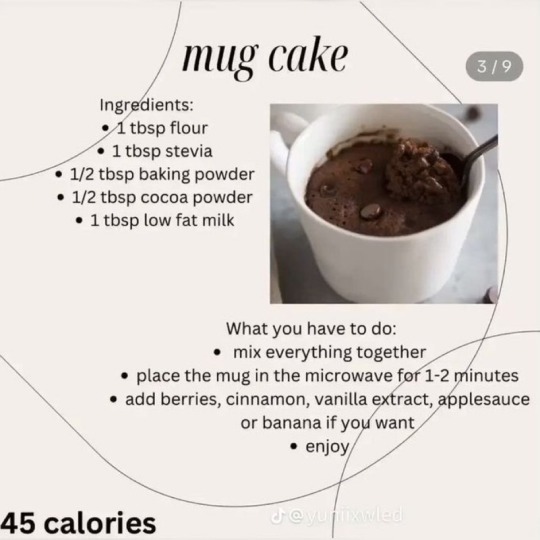

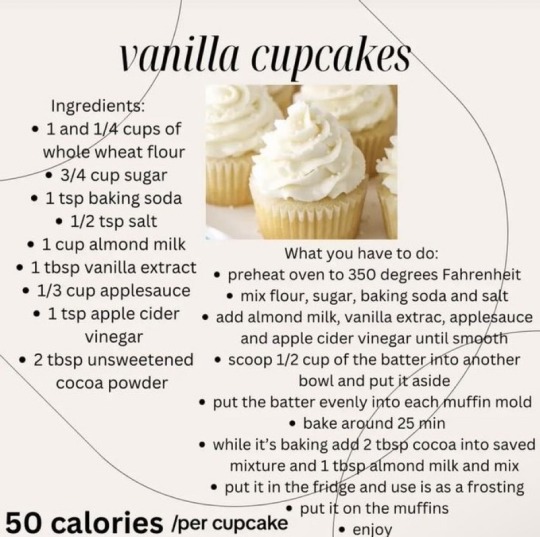
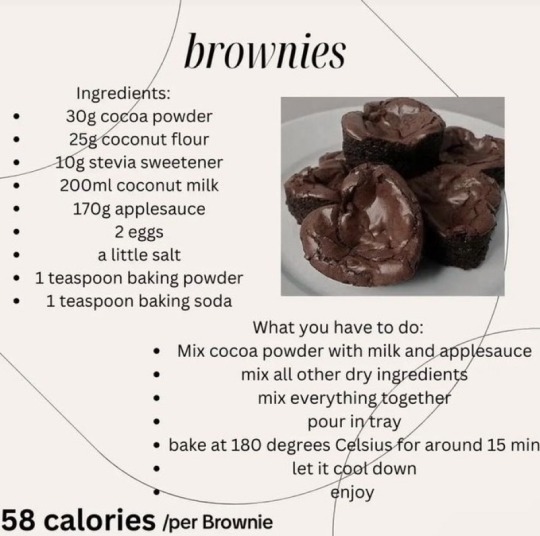
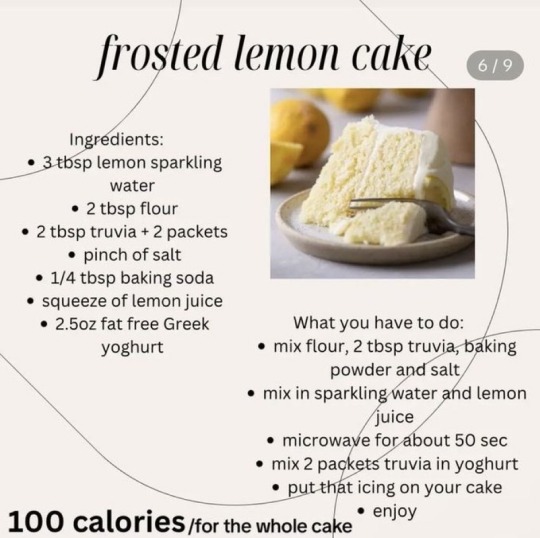

another bunch of low cal recipes ೃ࿔*:・
#ana bllog#ana meal#ed disorder#low cal restriction#low cals#thinspø#disordered eating thoughts#ed diet tips#restricted diet#anatumblr#low calorie meals#low cal diet#low cal meal#calorie restriction#counting cals
2K notes
·
View notes
Note
Okay THANK YOU for saying “your body craves what it needs” is bs because that felt like bs this whole time.
Like you don’t need more sugar if you crave sweets that is NOT what that means. Sugar is a food that people crave because it tastes good/sugar I think is an addictive food??
Idk it just felt like people making excuses when they’re supposed to be trying to eat a little healthier (healthier, not low cal, not low fat or keto or whatever. Diets are bs but craving sweets does not mean sugar is healthy thing for your body rn)
People crave sugar because it tastes good, which is not a bad thing, and there is an evolutionary reason that sugar and fat taste good to us. Carbs are your body's favorite thing because it is SUPER easy for your body to break them down into useful molecules.
I'm not a fan of the idea that any foods are addictive and I'm skeptical of models that suggest "refined food addiction" is a thing with a measurable, real-world impact; there's a lot of debate in that area of nutrition science and to me it kind of seems like the tools people use to track food addiction aren't really examining the addictiveness of specific foods, but are decent screening tools for people who have compulsive behaviors around food (for instance, one group of people who the Yale Food Addiction Scale has repeatedly been demonstrated to be REALLY good at identifying is people with anorexia).
But your body needs sugar all the time, whether that's in the form of complex carbohydrates that get broken down into simple sugars by your body, or simple sugars that you stir into your tea that then gets sent to your cells as energy. If your diet doesn't have enough sugar in it, your body has a processes to turn non-sugars into sugar so that it can use the sugar (gluconeogenesis!). Sugar is unambiguously good for you in the way that fat is unambiguously good for you. You need sugar to survive and it's not a bad thing if you want to have a cookie or a soda or some candy, and again - your craving probably isn't telling you that you're deficient in a specific micro or macronutrient, but I still think that you should listen to your craving.
Like, I don't know how much you know about psychotherapy but the attitude that a lot of diet-focused discussion takes toward cravings reminds me of cognitive behavioral therapy. "When you crave chocolate, no you don't! Don't think about the chocolate, you actually probably need starch or sugar or something, let's redirect that into having a banana, or some frozen berries, or some spinach. Point away from the unhealthy craving and into the healthy replacement, or, better yet, ignore the craving. Mind over matter. You choose how you act."
(I actually think "X craving means that I want Y food so I shall replace it with Z, which is similar" "craving salt means that I am dehydrated and need electrolytes so instead of potato chips I'll have some soup" is how this goes most of the time. I think this is a diet culture thing, not a food positivity thing.)
And you know what I think that's a garbage way to look at both food and emotions.
When I'm craving ice cream it's not because I've been mostly vegetarian for a week and am low on dietary cholesterol (AN IMPORTANT NUTRIENT. Don't be scared of consuming some cholesterol), I'm craving ice cream because sugar and fat taste good. So instead of trying to pretend that I'm getting "what I need" from a piece of salmon the size of a deck of cards with no salt and some lemon squeezed on top, I'm going to scoop out a moderate portion of ice cream and eat it while focusing on how much I enjoy it. And I'm going to do that instead of sitting down with a pint and a spoon while I'm stressed at work and eating something that tastes good to distract from the fact that work is stressful. (And sometimes it's fine to sit down with a pint and a spoon but I will say that's generally best not to do while you're in the middle of something stressful)
And if you want to relate that back to therapy I see this as more of the DBT approach. I've accepted that I want ice cream so I'm going to eat it in an intentional way and enjoy it instead of eating so much that I don't want dinner, or that it makes me feel sick, or that I eat it without noticing it because I'm using it as a distraction instead of a snack.
I'm not trying to shut down the negative emotion or shun the "bad" food, I'm accepting that I have that emotion and I'm working this neutral food into my day so that I'll feel good tomorrow and won't get heartburn overnight.
So I see that you're trying to be kind of anti diet culture here, but I don't think people need excuses to eat sugar, and I actually think that making excuses to eat it is significantly less healthy than just eating the sugar (which, again, is unambiguously healthy to eat as part of a varied, filling, nutritious diet). It seems like you may have internalized some ideas about sugar that are not great even if you are trying to separate from diet culture.
Nobody is ever going to eat a diet so healthy and nutritionally complete that they don't want candy or cake or cookies sometimes. Food is not only fuel, it is entertainment and culture and comfort and distraction and celebration and a million other things, but it is not bad. I don't think there's a single universally bad food out there, or any food that never belongs as part of someone's diet (unless it's something you're allergic to - I don't care if you're craving peanuts, do not eat peanuts if you have a peanut allergy).
So it's okay to make sugar, you don't need to make excuses. It's okay to eat sugar if you're craving sugar, even if that's not what your body "needs". But also sometimes a craving is your body saying "I'm hungry and this sounds good, please feed me" even if you're not a finely-tuned spectrometer that's craving blueberries pie because you actually need antioxidants from the blueberries (you're not a finely tuned spectrometer, you don't need the antioxidants from the blueberries, it's perfectly fine to just eat a slice of pie).
635 notes
·
View notes
Text
We ask your questions so you don’t have to! Submit your questions to have them posted anonymously as polls.
#polls#incognito polls#anonymous#tumblr polls#tumblr users#questions#polls about food#submitted june 20#food#eating#eating habits#nutrition#calories#counting calories
500 notes
·
View notes
Text
people who were fat as kids either become a fat adult or an adult with an eating disorder fr
#998456#ana trigger#counting calories#ed vent#tw ed sheeran#mealsp0#ana meal#tw ana diary#ana rant#ed bullshit
1K notes
·
View notes
Text
You asked, and i delivered. The result of the poll was low cal recipes so here ya go ๋࣭⭑ֶֶֶָָָ֢֢֢𖹭










Stay safe!!
#bulim14#bulimima#bulimist#tw mia#⭐️rving#buli#ed blr#tw 3d vent#tw ana mia#tw ed ana#tw ana rant#tw skipping meals#tw restriction#3d f4st#3d not sheeran#34t1ng d1s0rd3r#3ating d1sorder#ana y mia#tw an0rexia#tw ana bløg#⭐️ ing motivation#light as a 🪶#light as a feather#low cal diet#low cal restriction#i hate calories#calorie restriction#0 kcal#kcal counting#tw ed not ed sheeren
143 notes
·
View notes
Text


This was so much work for me!
#i dont have like bulimia or anorexia or whatever but some kind of other food avoidant disorder im not sure. anyways thats not healthy#also like i fully 100% would still be that weight if i didnt put concentrated effort in like i have to count calories every day to eat#enough
280 notes
·
View notes
Text
a little while ago i was talking to a friend about my ed and i dont remember the context but she said to me "I LOVE CARBOHYDRATES!!!!! I LOVE CALORIES!!!!!!" and i stopped and stared at my phone because i had genuinely never heard anyone say they love calories. like, even implicitly theres this messaging that lower calorie = better and that we should enjoy of food despite the calories it contains. and i was just floored that this was the first time i had ever heard anything like that and it made me feel so comforted. anyway appreciate your friends they are some of the most important people in the world
#ed recovery#jack's recovery experience#ana recovery#mia recovery#disordered eating#tw ed#anorexia recovery#bullimia recovery#ana#mia#anorexia nervosa#bullimia#you deserve to be happy#you deserve recovery#disordered eating recovery#eating disorder recovery#calories#counting cals
378 notes
·
View notes
Text
Cal amounts for snacks/meals



#starv1ng#tw disordered eating#ed meals#anarecja#eating problems#ed diet#eating disorder#ed#ed boy#restrictive ed#calorie counting#male ana#ana rules#ana diet#ana male#male ed#edblrr#ed tumblr
473 notes
·
View notes
Text
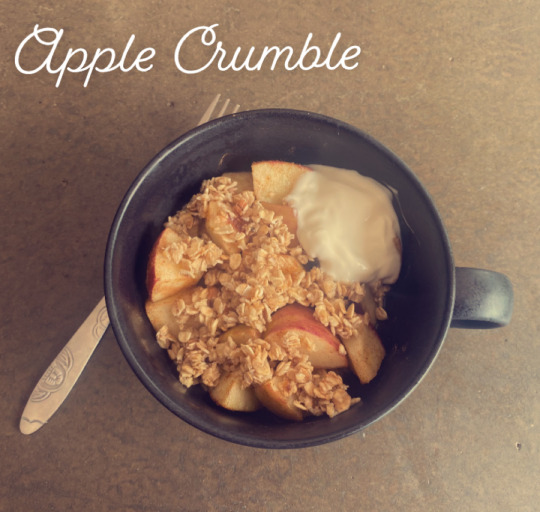
Total= 138
Ingredients:
1 apple- 50
2 teaspoons sugar- 30
1 teaspoon cinnamon - 6
10g of oats- 35
Splash of oat milk- 7
1 tablespoon of fat free yogurt- 10
#⭐️rving#⭐️ve#3d not sheeran#3d diet#@n@ tips#@na motivation#3d f4st#3dtumblr#@n@ diary#@na rules#tw skipping meals#low cal meal#mealsp0#mealspo#mealspø#low calorie meals#meal$p0#@n@ meal#counting cals#caloric deficit#cal log#caloric intake#low cal restriction#low cal diet#calories#low cal food#foodspo#food
205 notes
·
View notes
Text
I want him to worry about me I want him to notice the weight loss and not eating cause ugh validation but also can't have that happen cause then what if he thinks it's gross :p
#light as a feather#tw ana bløg#tw ed ana#⭐️rving#3ating d1sorder#tw skipping meals#⭐️ ing motivation#tw ana rant#3d f4st#tw 3d diet#tw calorie counting#tw restriction#34t1ng d1s0rd3r#3d vent
104 notes
·
View notes
Text
how it feels to eat a meal under 300cals

#anadiet#tw ed ana#i hate my body#low cal restriction#starting weight#wl motivation#⭐️ ing motivation#counting calories#low cal diet#i hate calories#low calorie meals#low cal meal#@n@ meal#a4a meal#1200 calories#tw calories#ana calories#low calorie diet
74 notes
·
View notes
Text
⊹₊ ˚‧︵‿₊୨୧₊‿︵‧ ˚ ₊⊹ WIEIAD ⊹₊ ˚‧︵‿₊୨୧₊‿︵‧ ˚
⭐️ lunch avocado toast on rice cake ( 252 kcal )
⭐️ snacks : miso soup ( 26 kcal ), rice chocolate cake ( 38 kcal ), skinny hot chocolate ( 12 kcal )
⭐️ dinner : none.
Total intake : 328 kcal
Total burned : 2100 kcal
Workout : 10k steps + dumbbells Pilate session
Stay safe girlies ���


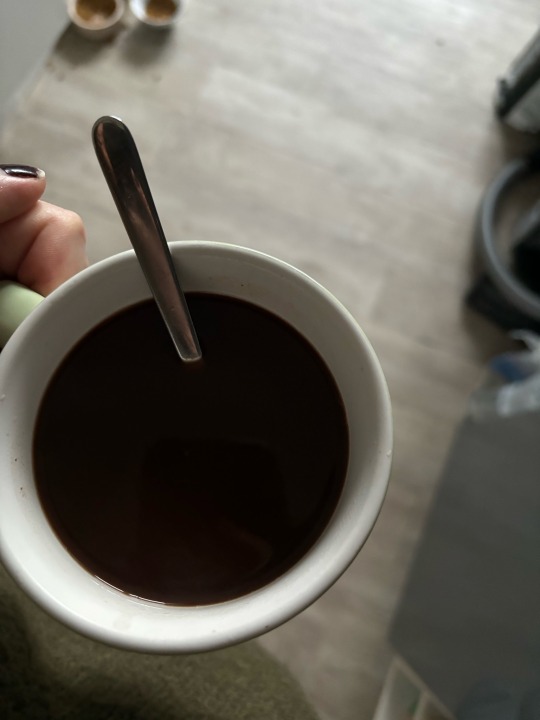
#anor#ed but not ed sheeran#tw ed ana#starv1ng#i just want to be thin#anor3c1a#thinspø#light as a feather#⭐️rving#tw skipping meals#wieiad#kcal counting#tw kcal#0 kcal#low cal restriction#low kcal#low cal diet#low calorie meals#low cal meal#€d diary#€d blog#€dblr#tw €d#4nablr#4n0rexic#4n@diary#4norexla#4n4blr#4nor3xia#⭐️ ing motivation
64 notes
·
View notes
Text
☆ing is bad but intermittent fasting is good?
bruh do you think your body knows why youre not eating LMAO
#998456#ana trigger#counting calories#ed vent#tw ed sheeran#mealsp0#ana meal#tw ana diary#ana rant#ed bullshit
478 notes
·
View notes
Text
I don’t feel pain anymore, but I’m so hungry.
#thinspø#light as a feather#light as a 🪶#tw ana bløg#tw ed ana#tw 3d vent#tw ana rant#tw skipping meals#anor3c1a#anoreksik#anor3cla#anorecyc#an0r3cia#4norexia#4nor3xia#4norexla#4n@diary#4n4blr#4n4rexia#tw an0rexia#4n0r3x!4#low cal restriction#low cal diet#low calorie meals#low cal meal#lowcarb#i hate calories#tw cals#counting cals#3d cals
60 notes
·
View notes
Text
i wonder how kevin's fitness-obsessed mind justifies his alcohol addiction
#kevin day#aftg#all for the game#like does he think as long as his hangovers don't effect his court time its ok?#that doesn't really fit with the idea that he's a health freak outside court too#like you're telling me he doesn't see the irony of counting calories in decimals then downing a litre of straight vodka?#or is he just so addicted he cant stop?#i feel like he'd go for rehab if he thought it would influence his long term playing but that doesn't seem to be on his bucket list#like i get he'd be hopelessly addicted at the nest but now that his future seems to have some light i'm not sure why he still lets his#addiction destroy him slowly when he's thankfully now adamant on achieving a livable life#idk if this makes sense or if its been addressed somewhere else before but yeah i was just wondering#also sorry if this is inconsiderate or ignorant as to how addictions work i don't know the best
186 notes
·
View notes